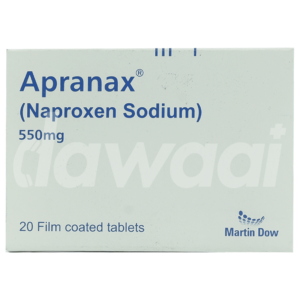Introduction
Expert Advice
Indication:
This medication is used to treat severe malaria including cerebral malaria and as a second line treatment in chloroquine resisitant falciparum malaria
Contraindication:
This medication is contraindicated in patients with history of arrhythmias (abnormal heart rhythm), bradycardia (slow heart rate), and congestive heart failure
Side effects:
The patients taking this medication may experience abdominal pain, anorexia (eating disorder), diarrhea, vomiting, nausea, and dizziness. If you experience any of these symptoms for a long period of time, consult your doctor immediately
Precautions:
The patients taking this medication must be cautious in cases of electrolyte disturbance, use with other drug that causes prolonged QT interval (heart muscles take longer than usual to recharge between beats), dizziness, severe cardiac (heart) or renal (kidney) impairment
Interaction:
This medication may interact with inhibitors of CYP3A4, substrates of CYP262D, grapefruit juice, class Ia III antiarrythmics (prevents abnormal heart rhythm), antidepressants, antimalarials, gormonal contraceptives, azole anti-fungal and antipsychotics (treats bipolar disorder)
Pregnancy:
This medication is contraindicated in pregnancy
Lactation:
This medication is contraindicated in lactation
Primary Uses
Malaria
Indications
This medicine is used in the treatment of severe malaria including cerebral malaria and as a second line treatment in chloroquine resisitant falciparum malaria.
Side Effects
Patients using this medication may at times experience abdominal pain, anorexia (eating disorder), diarrhea, vomiting, nausea, and dizziness. If you experience any of these symptoms for a long period of time, consult your doctor immediately.
Warnings
 Pregnancy
Pregnancy
This medicine is contrainicated in pregnant females.
 Lactation
Lactation
This medication is contraindication in lactating females.
 Alcohol
Alcohol
Please avoid consuming alcohol when taking this medicine.
 Precautions
Precautions
This medicine should be used with extreme caution in patients with an electrolye disturbance and in those who use other drugs known to cause QT-interval prolongation.
Contraindications
This medicine should not be used in patients with history of arrhythmias (abnormal heart rhythm), bradycardia (slow heartrate), and congestive heart failure.
FAQS
Indications:
This medicine is used to treat severe malaria including cerebral malaria (malaria involving the brain) and Chloroquine-resistant Falciparum Malaria (species of plasmodium).
Storage:
Please store the tablet form of this medicine at room temperature (18-25 Celsius). Keep medicine away from children, and excessive light and moisture.
Precautions:
The patients with heart problems and family history of sudden death should be cautious.
Effects on pregnancy and lactation:
This medicine is not recommended during pregnancy. The effect is undetermined in lactating females; therefore, caution is advised.
Side Effects:
You may experience reticulocytopenia (decrease in immature red blood cells), heart problems, abdominal pain, and diarrhea.
Administration:
This medicine is mostly used intravenously. It is injected into a vein by a medical professional. However, if you are self-injecting or using it at home, make sure you take all necessary precautions before injecting. The dosage is dependent on the age, condition and its severity. Please consult your doctor before use.
Contraindications:
The patients with electrolyte disturbances and using other medicines for severe heart problems should avoid use of this medicine.
What are the uses of Lumefantrine?
This medication is used for treating adults and children suffering from malaria. Malaria is a condition in which a certain type of mosquito infects the human by its bite.
How to store Lumefantrine?
Please store the tablet form of this medicine at room temperature (24-25 Celsius). Keep medicine away from excessive light and moisture.
What are the precautions for taking this medicine?
• Avoid doing work that requires alertness such as driving immediately after taking this medicine as it may cause drowsiness • Patients who have previously used antimalarial drugs in the pastmonth or two must inform doctor • Diabetic patients must be cautious
Does Lumefantrine have any effect on pregnancy and lactation?
This medicine should only be used during pregnancy if clearly needed and no safer alternate is available. This medicine may passes into breast milk and may harm the baby. Consult your health care provider before use of this medicine.
Can I use this to prevent malaria?
No, this medicine is not for prevention of malaria.
Disclaimer
Dawaai’s intention is to make sure that it’s consumers get information that is accurate, reviewed by an expert and error-free. However, the information mentioned here should not be used as a replacement for the advice of a qualified physician. The information given here is for informational purposes only, which may not cover all possible precautions, side effects, contraindications or drug interactions. Consult your doctor and discuss your queries related to any medicine or disease.




Reviews
There are no reviews yet.